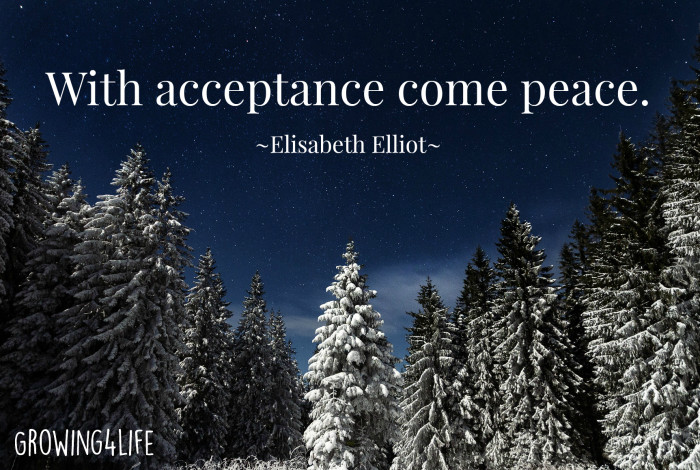Why Are You So Offended?
The other day I was shopping for groceries right around lunchtime. Spotting the beautiful salad bar in the store, I decided to buy a salad for lunch. Choosing one of the containers that has three different sections, I filled it up and then carefully set it in my cart. There it lay, with salad ingredients in one half and some beautiful fruit in the corner. Perfectly separated.
I managed to get it to the check out counter without mixing the items all together and there I lifted it out of the cart, holding it in such a way that the salad would not get mixed with the fruit, and rested it behind the rest of my items on the conveyor belt.
But all that care ended up being in naught as I watched the store clerk lift up the salad and recklessly turn it to and fro looking for a bar to scan. Finally, she sighed and asked the clerk beside her how to check out a salad.
Upon receiving the necessary information, she checked out my now thoroughly mixed salad and put it in a bag.
Now, in my earlier life I may have grown a bit frustrated over this all. Yes, it’s just a salad but she had undone everything I had so carefully tried to avoid in just a few seconds. Literally. She had carelessly lifted it up and mixed it all together, with no thought given to how I might feel about that.
But here’s the thing– she had no idea whatsoever that she was frustrating me. None at all. Her only thought was that here was something she didn’t know how to check out and she knew she had to figure out how to check it out and she had to do that quickly.
So often we get so offended with people who have no idea they are even offending us. They are just living their life from their perspective without a care for anybody else’s and their agenda collides with ours. In this case, my agenda was to keep the container flat so that my food wouldn’t get all mixed together. The clerk’s agenda was to find a price for that salad. When these agendas clashed, I knew a moment of irritation.
So why in the world am I talking about something so unimportant? Because– let’s face it– a salad that gets all mixed together is about the most minuscule thing in life you can imagine. I share this because I think there is a much deeper lesson to be learned.
Well, two lessons, actually.
First, we get offended about the wrong things. I mean who cares about a salad? Or the car that cut in front of us on the highway? Why do we care so much about the co-worker who got the credit we deserved or when our spouse shares something that they would like us to change? We care because we care so very much about ourselves.
In contrast, think about the last time you got offended when you heard God’s name taken in vain or heard someone take a Bible passage out of context or make some heretical statement. Did this offend you? Did it fill you with the same irritation that it would have if they had taken your words out of context or used your name as a swear word?
My guess is no. And this is a great test about who we love most, isn’t it? Just when I think I am making some headway, God will show me that I still love me most. It’s a discouraging, disheartening thought. Until I remember how far I’ve come. I am still struggling, but I love God now in a much deeper and fuller way than I even dreamed possible when I was a teenager. Filling my mind with His Word is how this came about. There is no shortcut full of special experiences and feelings (but that’s a really, really long bunny trail and a post for another day).
So are we getting offended about the right things? This is a question we must ask ourselves.
The second lesson to be learned from the salad incident is that, whether we are personally offended or offended for the sake of God and His Word, how we react says a lot about us. Do we grow angry and defensive? Do we speak unkind words or give someone the silent treatment? This says we love ourselves so much more than we love God.
But if we overlook small, inconsequential offenses we show a desire to be like Christ. If we address worthwhile offenses with love and kindness, using God’s Word as our guide, we show that our love for that person is far greater than our desire to “be right”. If we practice patience and joy when someone is frustrating us, we show that we have eternal perspective.
Now let’s think about this practically for a moment. What would these reactions show to a world overflowing with self-absorbed, easily-offended people? It would be a welcome and wonderful change for store and hotel clerks, for co-workers, and for churches, too. It may even give us an opportunity to talk about the Gospel. At the very least, it will be evidence of the light of Christ that is within us.
We are never going to change anybody else. But we can change ourselves. We can choose to overlook a slight offense. We can show love and grace when confrontation is necessary. And we can choose to challenge people on the stuff that really matters–the things that offend our loving, heavenly Father. And, in doing these things, we are shining witnesses for Jesus Christ and also help to make the world a gentler, kinder place.
It begins with us.










